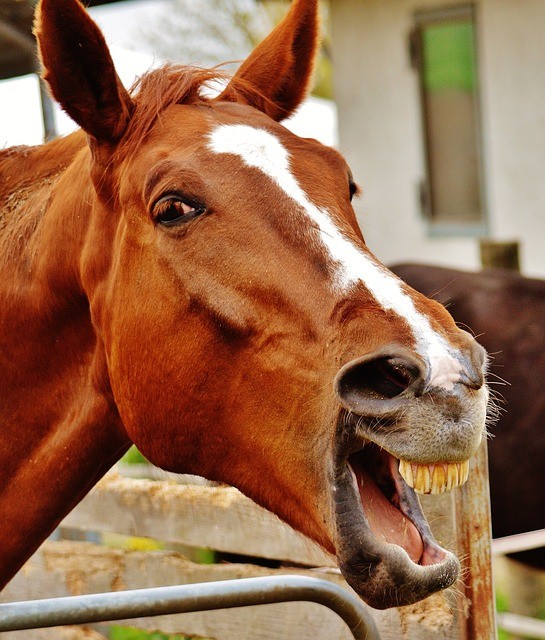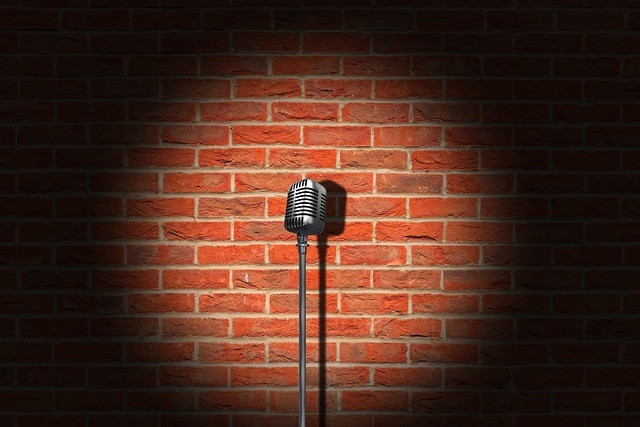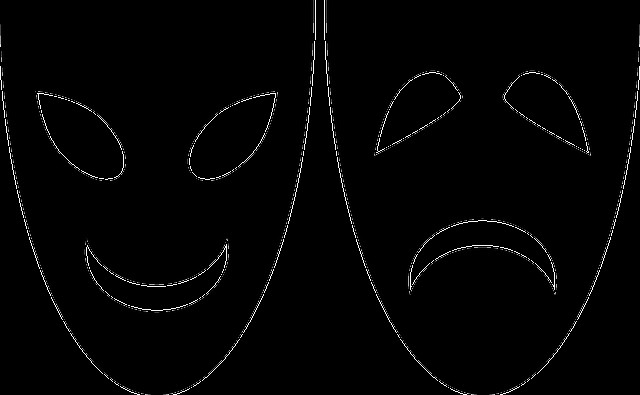What Is A Dry Sense Of Humor? It’s a subtle and understated comedic style that relies on irony, deadpan delivery, and wit. At WHAT.EDU.VN, we help you understand this unique form of humor and its appeal. Explore the world of wry humor, sardonic humor, and deadpan humor with us.
1. Defining Dry Humor: The Art of Understatement
Dry humor is a specific type of comedy defined by its understated and subtle nature. Rather than relying on broad, obvious jokes or slapstick, it uses a deadpan delivery and often depends on the audience to pick up on the irony or absurdity of the situation. A person with a dry sense of humor excels at delivering funny or witty remarks with a straight face, almost as if they aren’t trying to be funny at all.
This style of humor often derives its comedic effect from the incongruity between the serious delivery and the absurd or ironic content. Unlike more overt forms of comedy, dry humor requires the audience to actively engage their minds and appreciate the subtlety of the joke. It’s less about loud laughter and more about a quiet chuckle of understanding.
Dry humor involves intellectual wit, clever wordplay, and a keen awareness of social norms and expectations. It’s a comedy of nuance, where the humor lies in what isn’t said just as much as what is said.
Think of it like this: Imagine someone stating the most outrageous thing in the calmest, most matter-of-fact tone possible. That’s the essence of dry humor.
2. Key Characteristics That Define Dry Humor
Several key characteristics distinguish dry humor from other comedic styles. Understanding these traits will help you identify and appreciate this unique form of wit.
- Deadpan Delivery: This is perhaps the most defining feature. Jokes are delivered with a straight face, devoid of exaggerated emotions or physical gestures.
- Subtlety: Dry humor is never “in your face.” It relies on implication and suggestion rather than explicit statements.
- Irony: The use of irony is prevalent, where the speaker says one thing but means the opposite.
- Sarcasm: Often intertwined with irony, sarcasm is used to convey humor through cutting or contemptuous remarks.
- Understatement: Minimizing the importance of something to create a humorous effect.
- Intellectual Wit: Dry humor often requires a certain level of intelligence and understanding to fully appreciate the joke.
- Absurdity: Presenting illogical or nonsensical situations in a serious manner.
In essence, dry humor is a masterclass in comedic restraint. It’s about saying the most outrageous things in the most unassuming way possible.
3. Dry Humor vs. Other Comedy Styles: Spotting The Differences
To truly understand dry humor, it’s helpful to compare it to other, more common forms of comedy:
| Feature | Dry Humor | Slapstick Comedy | Observational Humor |
|---|---|---|---|
| Delivery | Deadpan, understated | Exaggerated, physical | Conversational, relatable |
| Focus | Irony, wit, subtle nuances | Physical gags, over-the-top actions | Everyday observations, common experiences |
| Audience Engagement | Requires active listening and interpretation | Relies on immediate, visceral reactions | Appeals to shared experiences |
| Example | “I’m not saying I’m Batman, I’m just saying no one has ever seen me and Batman in the same room.” | Pie in the face, pratfalls | Jerry Seinfeld’s stand-up routines |



As the table illustrates, dry humor stands apart due to its reliance on subtlety and intellectual engagement, while other forms of comedy prioritize more immediate and visceral reactions.
4. Famous Examples of Dry Humor in Pop Culture
Dry humor has found its way into countless movies, TV shows, and stand-up routines. Here are a few notable examples:
- “The Office” (US): Michael Scott’s inappropriate yet earnest comments and Dwight Schrute’s unwavering seriousness in the face of absurdity are prime examples.
- “Parks and Recreation”: Ron Swanson’s deadpan pronouncements on government and life are legendary.
- Steven Wright: The comedian is famous for his one-liners delivered with a completely expressionless face.
- “Airplane!”: The entire movie is a masterclass in deadpan delivery amidst utterly ridiculous situations.
- “Monty Python and the Holy Grail”: The British comedy troupe’s absurd scenarios and deadpan acting style define dry humor.
5. Who Appreciates the Subtle Art of Dry Humor?
Not everyone gets dry humor, and that’s perfectly okay. It tends to appeal to a specific type of person:
- Intellectuals: People who enjoy wordplay, irony, and subtle nuances.
- Those with a High Sense of Irony: Individuals who readily recognize and appreciate ironic situations.
- People Tired of Over-the-Top Comedy: Those who prefer a more understated and sophisticated form of humor.
- Quick-Witted Individuals: People who can quickly grasp the underlying meaning of a joke.
- Those Who Enjoy British Humor: Dry humor is often associated with British comedic sensibilities.
If you find yourself enjoying jokes that make you think a little bit, rather than just eliciting a belly laugh, you probably appreciate dry humor.
6. The Science Behind the Laugh: Why Dry Humor Works
While the subjective appreciation of humor varies widely, some theories explain why dry humor can be so effective:
- Incongruity Theory: Humor arises when there’s a mismatch between what we expect and what actually happens. Dry humor excels at creating these incongruities.
- Superiority Theory: We laugh at others’ misfortunes or absurdities, which makes us feel superior. Dry humor can subtly exploit this feeling.
- Relief Theory: Humor releases pent-up psychological tension. Dry humor can provide a safe outlet for exploring taboo or uncomfortable topics.
Ultimately, the effectiveness of dry humor lies in its ability to challenge our expectations and make us think about the world in a new way.
7. Potential Pitfalls: When Dry Humor Misses The Mark
Despite its appeal, dry humor can sometimes backfire:
- Misinterpretation: The subtlety can be lost on some, leading to confusion or offense.
- Insensitivity: Sarcasm can be hurtful if not used carefully, especially in sensitive situations.
- Boredom: Overuse can make it predictable and unfunny.
- Cultural Differences: What’s funny in one culture may not be funny in another.
The key is to be mindful of your audience and the context in which you’re using dry humor.
8. Mastering the Art: How to Develop a Dry Sense of Humor
Developing a dry sense of humor is about more than just telling jokes. It’s about cultivating a certain attitude and way of looking at the world:
- Practice Deadpan Delivery: Record yourself telling jokes and work on maintaining a straight face.
- Study the Masters: Watch comedians like Steven Wright and analyze their delivery.
- Read Widely: Expose yourself to different writing styles and perspectives.
- Embrace Irony: Look for ironic situations in everyday life.
- Develop Your Wit: Practice wordplay and quick thinking.
- Be Observant: Pay attention to the absurdities of the world around you.
- Don’t Force It: Let your dry humor come naturally.
9. Ethical Considerations: Using Dry Humor Responsibly
It’s important to use dry humor responsibly and avoid causing offense or harm:
- Know Your Audience: Tailor your humor to the specific people you’re interacting with.
- Avoid Sensitive Topics: Steer clear of topics that could be triggering or offensive.
- Be Mindful of Cultural Differences: Be aware of how your humor might be interpreted in different cultures.
- Don’t Punch Down: Avoid making jokes at the expense of marginalized groups.
- Be Prepared to Apologize: If you accidentally offend someone, apologize sincerely.
10. Dry Humor in the Workplace: Navigating The Office Environment
Using dry humor in the workplace can be tricky. When used appropriately, it can lighten the mood and build camaraderie. However, it can also lead to misunderstandings or even HR complaints.
Here are some tips for navigating dry humor in the office:
- Know Your Company Culture: Some workplaces are more accepting of dry humor than others.
- Build Relationships First: Get to know your colleagues before trying to be funny.
- Avoid Sensitive Topics: Steer clear of jokes about religion, politics, or other potentially divisive issues.
- Be Mindful of Your Audience: Not everyone will appreciate your humor.
- Err on the Side of Caution: If you’re not sure if a joke will land, don’t tell it.
- Listen to Feedback: Pay attention to how people react to your humor.
11. Dry Humor and Mental Health: Finding Humor in The Darkness
Dry humor can be a coping mechanism for dealing with difficult or stressful situations. It allows people to find humor in the darkness and maintain a sense of perspective. However, it’s important to use dry humor in a healthy way and avoid using it to suppress or avoid dealing with underlying issues.
If you’re struggling with your mental health, it’s important to seek professional help. Dry humor can be a helpful tool, but it’s not a substitute for therapy or medication.
12. The Future of Dry Humor: Is it Here to Stay?
Dry humor has proven its staying power in pop culture, and its appeal seems likely to continue. As audiences become more sophisticated and seek out more nuanced forms of entertainment, dry humor is well-positioned to thrive.
The rise of online platforms and social media has also created new opportunities for dry humor to reach a wider audience. Memes, viral videos, and social media accounts dedicated to dry humor have proliferated, demonstrating its enduring appeal.
13. Frequently Asked Questions About Dry Humor
| Question | Answer |
|---|---|
| What’s the difference between dry humor and sarcasm? | Sarcasm is a form of irony used to mock or convey contempt, while dry humor is a broader comedic style that includes sarcasm but also incorporates understatement, deadpan delivery, and absurdity. |
| Is dry humor the same as British humor? | While dry humor is often associated with British comedic sensibilities, it’s not exclusive to British culture. |
| How can I tell if someone is using dry humor? | Look for a straight face, understated delivery, and subtle irony. |
| Is dry humor appropriate for all situations? | No, it’s important to be mindful of your audience and the context in which you’re using dry humor. |
| Can dry humor be offensive? | Yes, if not used carefully. Be mindful of sensitive topics and cultural differences. |
| Where can I find more examples of dry humor? | Watch TV shows like “The Office” and “Parks and Recreation,” listen to comedians like Steven Wright, and explore British comedy. |
14. How to Spot Dry Humor in Everyday Conversations
Identifying dry humor in everyday conversations can be tricky, but here are some clues:
- Look for a Lack of Emotional Response: The speaker may say something funny, but their facial expression and tone of voice remain neutral.
- Listen for Understatement: The speaker may downplay the importance of something to create a humorous effect.
- Pay Attention to Irony: The speaker may say one thing but mean the opposite.
- Consider the Context: Is the situation absurd or ironic in some way?
- Trust Your Gut: If you suspect someone is using dry humor, they probably are.
15. The Role of Timing in Delivering Dry Humor
Timing is crucial in all forms of comedy, but it’s especially important in dry humor. A well-timed pause or a perfectly placed word can make all the difference. The key is to deliver the joke in a way that catches the audience off guard and makes them think for a moment before they realize it’s funny.
16. Dry Humor vs. Dark Humor: Exploring The Differences
Dry humor and dark humor are often confused, but they are distinct styles of comedy.
| Feature | Dry Humor | Dark Humor |
|---|---|---|
| Subject Matter | Everyday observations, absurdities, ironies | Taboo subjects like death, disease, and suffering |
| Tone | Understated, subtle, intellectual | Cynical, morbid, often shocking |
| Purpose | To elicit a chuckle or a quiet laugh | To provoke thought, challenge societal norms, or cope with difficult emotions |
While both styles of humor can be funny, they serve different purposes and appeal to different sensibilities.
17. The Connection Between Intelligence and Dry Humor
There’s a common perception that people who appreciate dry humor are more intelligent than those who don’t. While there’s no definitive scientific evidence to support this claim, there are some reasons why this perception might exist:
- Dry humor requires more cognitive effort to understand.
- It often relies on wordplay and intellectual references.
- It appeals to people who enjoy thinking critically and challenging assumptions.
18. Dry Humor Around the World: Cultural Variations
Dry humor is not a universal phenomenon. What’s considered funny in one culture may not be funny in another. For example, British humor is often characterized by its dry wit and sarcasm, while American humor tends to be more broad and physical.
It’s important to be aware of cultural differences when using dry humor, especially in international settings.
19. The Use of Dry Humor in Literature
Dry humor has been used effectively in literature for centuries. Authors like Jane Austen, Mark Twain, and Oscar Wilde are known for their use of wit and irony. Dry humor in literature can add depth and complexity to the story and make it more engaging for the reader.
20. Why Dry Humor is a Sign of High Emotional Intelligence
While it may seem counterintuitive, mastering the art of dry humor often indicates a high level of emotional intelligence. This is because:
- It requires a strong understanding of social cues and norms.
- It involves the ability to read people’s emotions and tailor your humor accordingly.
- It demonstrates self-awareness and the ability to laugh at yourself.
By understanding these nuances, you can appreciate the depth and complexity of dry humor.
Do you have more questions about humor? Visit WHAT.EDU.VN to ask any question and get free answers from our community of experts. We’re located at 888 Question City Plaza, Seattle, WA 98101, United States. You can also reach us on Whatsapp at +1 (206) 555-7890 or visit our website at what.edu.vn.